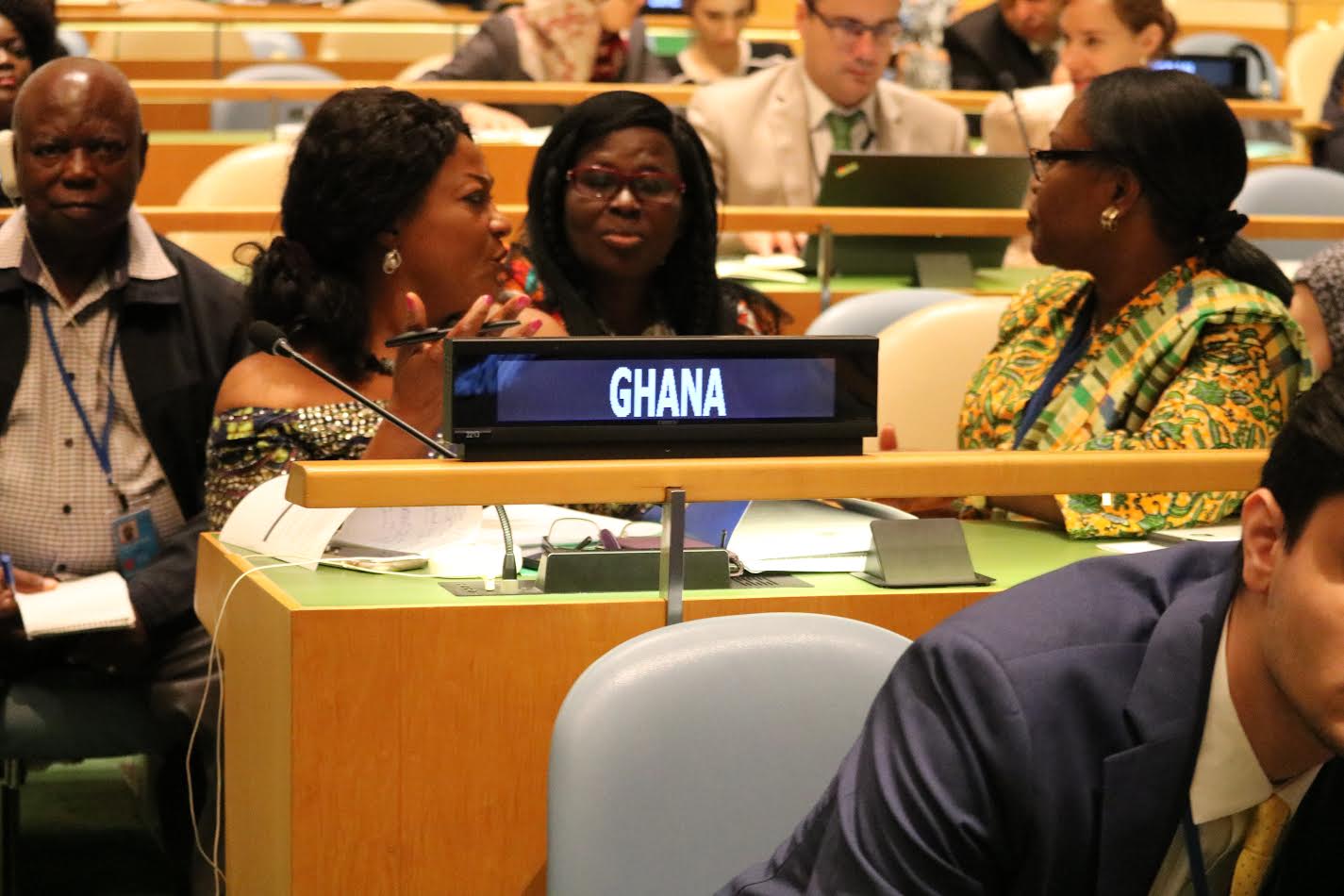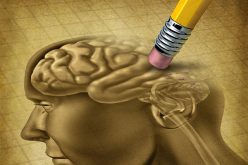
Ms. Djaba (Second from Left), Amabassador Martha Pobee,(right) Ghana’s Permanent Representative and Mrs Getrude Oforiwa Fefoame,(second from right) Global Advocacy Advisor, Sight Savers in a discussion at the General Assembly
The Ghana government has intensified public education to eliminate the negative perception that disability is a curse and an evil affliction.
Gender, Children and Social Protection Minister Otiko Djaba, said this today (June 13, 2017) when she presented Ghana’s case at the 10th session of the Conference of the States Parties to the Convention on the Rights of Persons with Disabilities (CRPD) at the United Nations Headquarters in New York.
The three-day programme under the theme ““The Second Decade of the CRPD: Inclusion and full participation of persons with disabilities and their representative organizations in the implementation of the Convention” is to promote the rights and advancement of persons with disabilities within a broad mandate provided by the World Programme of Action (1982), Standard Rules (1994) and the Convention on the Rights of Persons with Disabilities (2006), as well as other relevant human rights and development instruments.
The participants, drawn from all over the world include top government officials,Persons with Disabilities,Civil Society Organizations, departments, agencies and bodies whose work have a bearing on Disabilities. They will address the impact of multiple discrimination on persons with disabilities, and promote their participation and multi-stakeholder partnerships for achieving the Sustainable Development Goals in line with the Convention.
Other topics listed include the inclusion and full participation of persons with disabilities in humanitarian action and promoting inclusive urban development and implementation of the New Urban Agenda.
The participants will also have an interactive dialogue between States parties and the United Nations system on the implementation of the convention.
The Minister who is leading Ghana’s delegation to the Convention emphasized that ” we must collectively work harder to celebrate their abilities, for disability is not inability”.
In acknowledgement of the numerous barriers persons with disabilities face in life, she said that the government has over the years made the issue of disabilities a priority agenda, and currently intensified efforts on the inclusion and participation of persons with disabilities and Disabled People’s Organization (DPOs) in the country’s development process.
In furtherance of this objective, Ms. Djaba mentioned that the Affirmative Action Bill, designed to create opportunities for Persons With Disabilities (PWDs) is under consideration in Ghana’s Parliament.
To reduce poverty and inequality among Persons with Disability, she noted that government was also reviewing the Ghana Disability Act 175 of 2006 in order to adequately align it with the CRPD.
All new government and public buildings are also to be built in such a way that will make it easy for People with Disabilities to easily gain access to them.
Together with the DPOs, she announced that a draft guideline and standards on the use of accessible formats in the provision of information and services in Ghana has been developed.
The Minister revealed that the current two per cent allocation of the national revenue from the District Assemblies Common Fund has been increased to three per cent.in order to increase access to education, healthcare and assistive devices by the most vulnerable among Persons With Disability.
Currently, Ms.Otiko Djaba said the 25,000 beneficiaries of the Ghana Livelihood Empowerment Against Poverty (LEAP) have also been registered under the National Health Insurance Scheme to enable them to have assess to education,healthcare ,assistive devices.
To ensure that the resources get to the right people, the Minister disclosed that the National Council for Persons with Disability had developed a mechanism to independently monitor the disbursement of the (LEAP)funds. Other measures include providing ramps and lifts in public institutions, reading materials in accessible format with the help of the Braille translation centre of the Ghana Blind Union.
Tags:
United Nations










